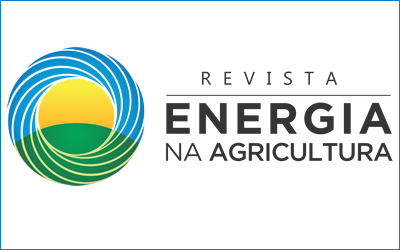DETERMINAÇÃO DO ÍNDICE DE COMBUSTÃO E DA TAXA DE QUEIMA DE BRIQUETES DE RESÍDUOS LIGNOCELULÓSICOS POR MEIO DE UM APLICATIVO DE COMPUTADOR COM COLETA DE DADOS AUTOMATIZADA
DOI:
https://doi.org/10.17224/EnergAgric.2020v35n4p531-548Abstract
DETERMINAÇÃO DO ÍNDICE DE COMBUSTÃO E DA TAXA DE QUEIMA DE BRIQUETES DE RESÍDUOS LIGNOCELULÓSICOS POR MEIO DE UM APLICATIVO DE COMPUTADOR COM COLETA DE DADOS AUTOMATIZADA
EMANUEL RANGEL SPADIM1, HUMBERTO DE JESUS EUFRADE-JUNIOR1, NATALIA LAÍS FELISARDO VIEIRA ARRUDA2, SAULO PHILIPE SEBASTIÃO GUERRA1, ELAINE CRISTINA LEONELLO1
1 Departamento de Engenharia Rural e Socioeconomia, Faculdade de Ciências Agronômicas, Universidade Estadual Paulista –Unesp, Av. Universitária, 3780, Altos do Paraíso, Cep: 18610‑034, Botucatu, São Paulo, Brasil. E-mail: emanuel.spadim@unesp.br, hdjejunior@gmail.com, leonelloelaine@hotmail.com, saulo.guerra@unesp.br
2 Faculdade de Tecnologia de Botucatu – Fatec Av. José Ítalo Bacchi, s/n - Jardim Aeroporto, Cep:18606‑851, Botucatu, São Paulo, Brasil. E-mail: nfvarruda@gmail.com
RESUMO: O objetivo deste trabalho foi avaliar o comportamento da queima e aprimorar a determinação do índice de combustão de briquetes de biomassa – ICOM, proposto por Quirino e Brito (1991), por meio de um aplicativo de computador com a coleta automatizada dos dados. Foram usados briquetes de toco de eucalipto, casca de algodão, madeira de pinus e bagaço de cana-de-açúcar, que foram especialmente confeccionados para a determinação do novo índice de combustão denominado ICOMa. O ICOMa foi estatisticamente mais sensível que o ICOM na observação da relação entre consumo de massa e geração de calor de materiais com diferentes curvas de temperatura, diferentemente do ICOM. O maior ICOMa foi de 0,97 K h g-1 e o menor de 0,75 K h g-1, enquanto os ICOM (adimensionais) foram de 0,55 e 0,43, respectivamente. A correlação de Pearson entre ICOMa e o tempo para atingir a temperatura máxima foi a maior entre as variáveis avaliadas.
Palavras-chave: Aquisição de dados. Biomassa. Poder calorífico. Taxa de queima.
DETERMINATION OF THE COMBUSTION INDEX AND BURNING RATE OF LIGNOCELLULOSIC WASTE BRIQUETTES THROUGH A COMPUTER APPLICATION WITH AUTOMATED DATA COLLECTION
ABSTRACT: This work evaluated the behavior of the briquettes during burning and to improve the determination of the combustion index of biomass briquettes - ICOM, proposed by Quirino and Brito (1991), through a computer application with automated collection of data. The briquettes used in the tests were cotton bark, eucalyptus stump, sugarcane bagasse and pine wood and were produced specifically for the determination of the new combustion index called ICOMa. ICOMa was more sensitive than ICOM in observing the relationship between mass consumption and heat generation, and allowed to observe statistically significant differences between materials with different temperature curves, different from ICOM. The highest ICOMa was 0.97 K h g-1 and the lowest 0.75 K h g-1, while the ICOM (dimensionless) were 0.55 and 0.43, respectively. The highest Pearson correlation observed for ICOMa occurred with time to reach the maximum temperature.
Keywords: data acquisition, biomass, higher heating value, burning rate.
Downloads
Published
How to Cite
Issue
Section
License
Copyright (c) 2021 ENERGY IN AGRICULTURE

This work is licensed under a Creative Commons Attribution-NonCommercial-NoDerivatives 4.0 International License.
Esta revista proporciona acesso publico a todo seu conteúdo, seguindo o princípio que tornar gratuito o acesso a pesquisas gera um maior intercâmbio global de conhecimento. Tal acesso está associado a um crescimento da leitura e citação do trabalho de um autor. Para maiores informações sobre esta abordagem, visite Public Knowledge Project, projeto que desenvolveu este sistema para melhorar a qualidade acadêmica e pública da pesquisa, distribuindo o OJS assim como outros software de apoio ao sistema de publicação de acesso público a fontes acadêmicas.





